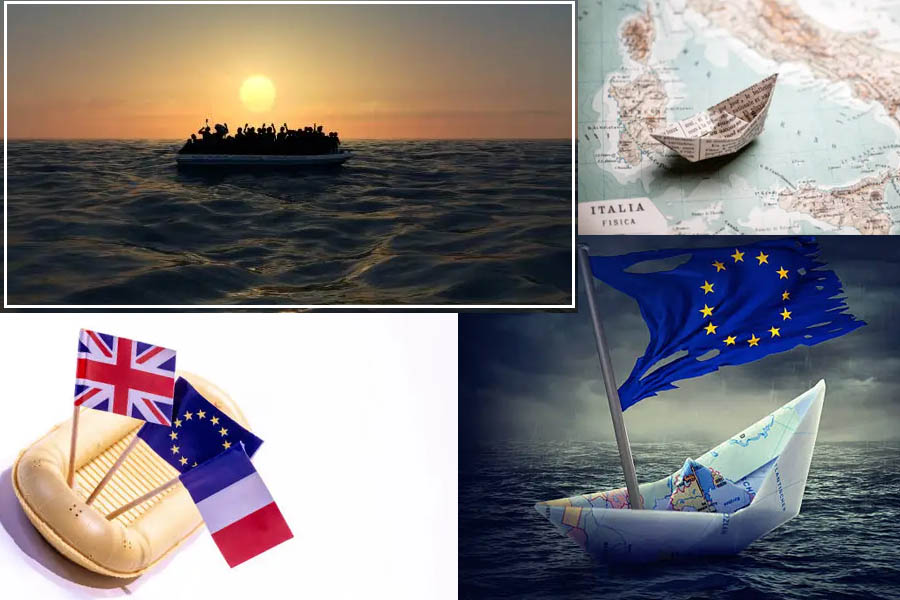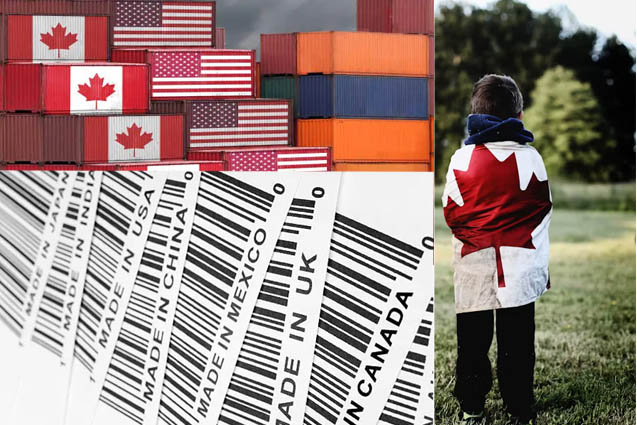The Boat Immigrant Crisis: An Unavoidable Tradition or Deep-Rooted Issue?
In the murky waters of the English Channel, Mediterranean Sea, and the Atlantic Ocean, a growing crisis of boat migrants has become a deeply entrenched issue in both the United Kingdom and European Union countries. What was once seen as an emergency, now seems almost like a tradition—a perilous voyage that many risk their lives to undertake, and a reality that countries seem unable to completely avoid or resolve.
The Rise of Boat Arrivals: A Decade of Unprecedented Numbers
In 2024, the United Kingdom witnessed a startling 25% increase in small boat arrivals, bringing the total to 36,816 individuals—a sharp rise from the 29,437 arrivals of the previous year, and only marginally less than the 45,774 people who crossed the English Channel in 2022. The year 2024 also marked the deadliest year for Channel crossings, with 53 recorded fatalities, underscoring the increasing dangers of these crossings. However, these numbers still pale in comparison to the situation in the Canary Islands, where Spain saw a new record with 46,843 people attempting the treacherous Atlantic route.
This influx of boat migrants is not just a modern crisis. It is the culmination of years of growing pressures, global instability, and increasingly dangerous migratory routes. From 2018, the numbers have steadily climbed from 299 to tens of thousands today, becoming an inescapable part of the landscape in both the UK and EU.
The Failed Promises and Shifting Responsibilities
The situation has sparked intense political debates and divided opinions within the UK. Former Prime Minister Rishi Sunak’s promise to “stop the boats” was swiftly overrun by the rising numbers of arrivals. Sunak’s attempt to deter migrants by sending them to Rwanda—a plan vehemently backed by former Home Secretary Suella Braverman—was overturned after legal battles and was deemed unlawful by the Supreme Court. The same year saw the Home Secretary Yvette Cooper's admission that the UK government had a moral duty to curb these crossings but remained vague about a concrete strategy.
For Prime Minister Keir Starmer, the focus now lies on dismantling the people-smuggling networks that facilitate the crossings. This shift from government-backed deterrence to international collaboration aims to address the root cause of the crisis. Yet, as Starmer's government moves forward, the complexity of the issue becomes apparent—many key countries, including the UK, France, and Spain, seem to pass the responsibility between them.
The European Union and the Mediterranean Maze
Across the English Channel, France is also grappling with the situation, particularly in the northern coastal regions where many migrants first set foot. Yet, it remains a hotbed of inaction. Despite the rising number of boats setting sail from its shores, French authorities have been criticized for failing to effectively stem the flow of migrants or dismantle smuggling operations. These gang-run operations are well-funded, highly organized, and able to circumvent national border controls.
Meanwhile, Spain has become a central player in this migration drama, particularly with the increasing number of migrants attempting to reach the Canary Islands via the perilous Atlantic route. In 2024, Spain saw a record-breaking number of 46,843 arrivals by sea, marking an unsettling new milestone. The migrant crisis in Spain has become synonymous with the rising tides of desperation from West Africa, as people from countries like Mali, Senegal, and Morocco risk their lives to cross treacherous waters in flimsy, overcrowded boats. This shift has largely been driven by tighter Mediterranean controls, which have forced migrants to take longer, deadlier routes.
The Mediterranean remains a hotspot of migrant death tolls. In 2024 alone, the NGO Caminando Fronteras reported at least 10,457 deaths linked to migrant crossings—an increase of 50% from 2023. Yet, even in the face of these statistics, nations like Libya have been accused of perpetuating the crisis by failing to intervene meaningfully. Libya, often described as the launch point for many migrants seeking to reach Europe, has become synonymous with the direst of humanitarian conditions. Refugees face abuse, human trafficking, and unrelenting exploitation in detention centers, yet the political instability in the country renders any coordinated action near impossible.
The Unseen Toll: Lives Lost at Sea
The most tragic aspect of this crisis is the countless lives lost at sea. The grim stories of boats capsizing off the coast of Libya and Tunisia in early 2024 illustrate the true cost of these perilous journeys. In one harrowing incident, a boat carrying 27 migrants from Libya capsized off the coast of Italy, with 20 people falling into the sea and perishing in rough, frigid waters. The survivors—some from Syria, Sudan, and Egypt—spoke of the boat taking on water and tilting, before panic set in and many fell overboard, drowning in the waves. These grim tales are becoming a recurring theme of the crisis, highlighting the immediate need for a shift in how nations view and respond to this issue.
What Can Be Done?
There is no easy answer to the boat migrant crisis. The traditional approach of deterrence has failed, with many countries unable or unwilling to bear the brunt of the problem. The solution lies not only in bolstering border security but in addressing the underlying factors driving migration. War, poverty, climate change, and human rights violations are the primary drivers behind the desperate bids for a better life in Europe.
There is a pressing need for stronger, more coordinated international action. Europe must come together—not only to curb illegal migration but to address the root causes. This means offering refugees and migrants safer, legal routes into Europe, dismantling the smuggling networks, and providing aid to the countries suffering the brunt of this crisis. Failure to act decisively will only further entrench this crisis as a grim "tradition," one that countries like the UK, Spain, France, and Italy cannot continue to ignore. As long as people continue to risk everything for a chance at survival, this issue will remain an unavoidable reality.
A Global Call for Responsibility
The boat immigrant crisis is a tragic testament to the inequality and instability plaguing much of the world. For too long, the responsibility has been passed around between the UK, EU, and countries like Libya and Tunisia, with little to show in terms of meaningful solutions. If Europe is to tackle this crisis, it must abandon outdated notions of deterrence and embrace a comprehensive approach that addresses both immediate security concerns and the long-term humanitarian needs of migrants. Until then, the boats will continue to arrive, and more lives will be lost in pursuit of a better life.






